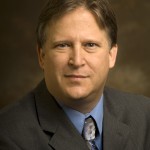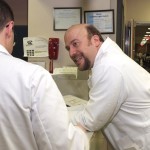Residents and relief workers along the oil-ravaged Gulf of Mexico could experience a host of short- and long-term health problems, including respiratory ailments, neurological symptoms, heat exhaustion and mental stress.
Emory University environmental health expert Linda McCauley, RN, PhD, is one of more than a dozen national scientists participating in a two-day Institute of Medicine (IOM) workshop in New Orleans exploring some of the potential health risks that people in the Gulf could face.
Short term, McCauley says, there could be reports of respiratory problems from people who’ve inhaled gas fumes as well as neurological issues such as dizziness, headaches, nausea and vomiting. In addition, exposure to oil may cause eye and skin irritation.
Heat stress is also a major concern for workers in the Gulf, says McCauley, dean of Emory’s Nell Hodgson Woodruff School of Nursing.
“On some of the days it’s been so hot they’ve only allowed workers to work 12 minutes out of the hour,†she says. “A lot of new workers are being brought in [to clean up the oil]. These are workers who don’t do this for a living and may never have been exposed to this type of heat before and that’s a serious issue.â€







